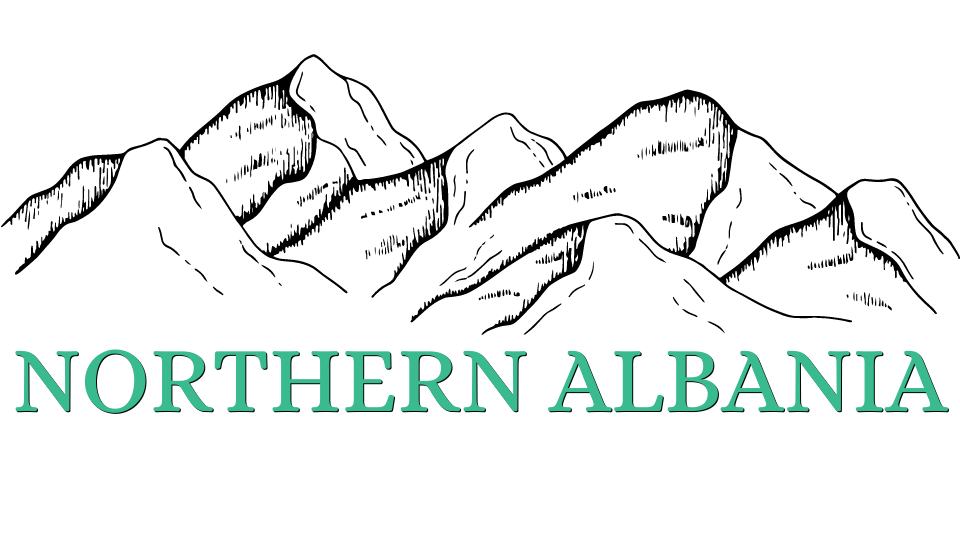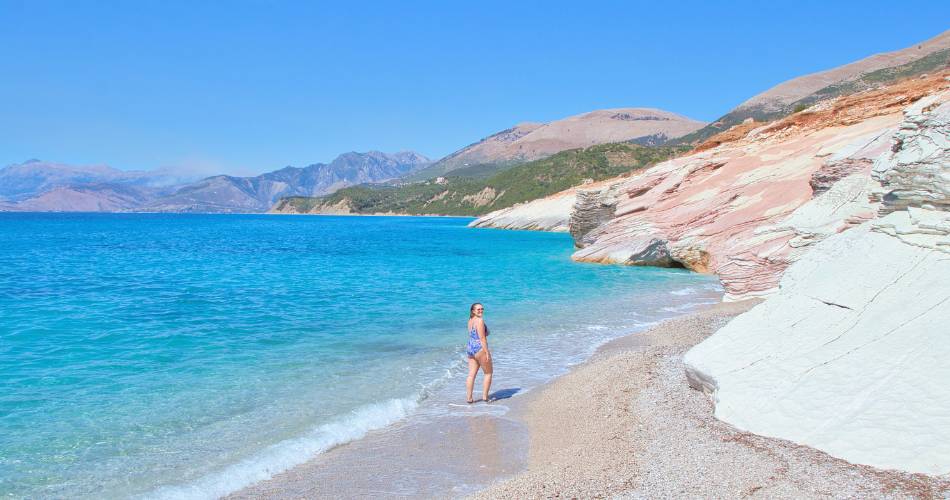A digital nomad is someone who uses technology to work remotely from anywhere in the world, allowing them to have the freedom to travel and work on their own terms.
Interested in life as a digital nomad in Albania? Well after spending almost two years living in different places and traveling around Albania, I’m going to give you the inside scoop.
Being a digital nomad has become a popular lifestyle choice for many individuals in recent years and Albania is becoming an attractive destination for nomads.
In this blog post, we’ll take a look at the benefits and disadvantages of being an Albania digital nomad.
And also look into the general digital nomad pros and cons and the advantages and disadvantages of freelancing.
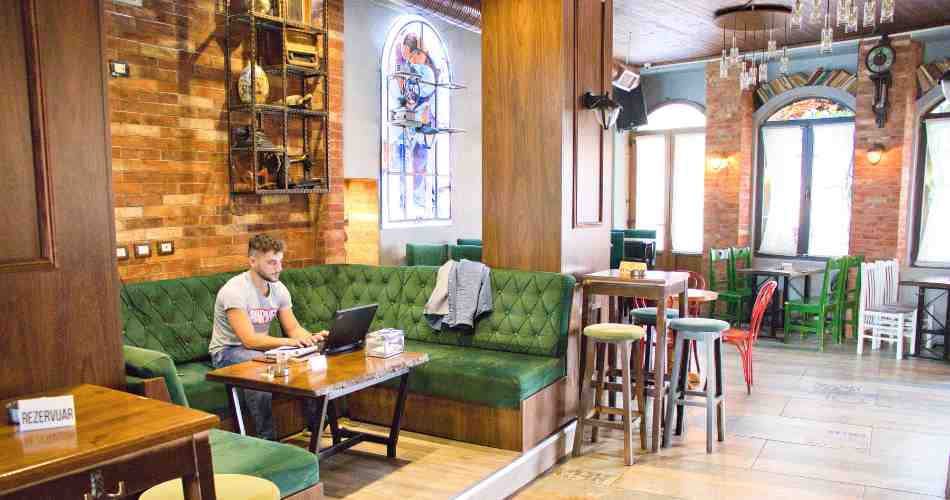
Disclaimer: This site contains affiliate links that will cost you nothing extra but offer me a little commission for any purchases made. These commissions do help me continue to offer helpful tips.
What Is The Digital Nomad Lifestyle?
The digital nomad lifestyle is all about freedom and flexibility.
Digital nomads typically work as freelancers or remote employees, which means they have control over their schedules and can work from anywhere with a stable internet connection.
This lifestyle is perfect for individuals who love to travel, experience new cultures, and explore the world while maintaining their careers.

Albania Digital Nomad Benefits
There are a lot of good things about being a digital nomad in Albania, especially if you enjoy nature. Here are some of the biggest benefits of living in Albania as a digital nomad.
Incredible Nature
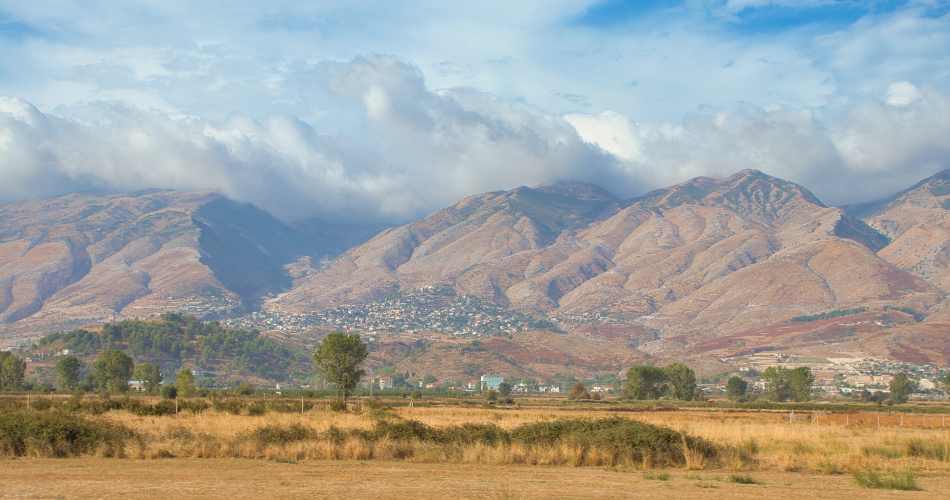
It’s no secret that Albania has stunning nature to enjoy. Slowly people are realizing, that the stereotypes about Albania are largely false and that it’s a great place to visit.
Albania has quite a variety of natural landscapes and environments to enjoy. It has 6 different climates, you can visit both hot springs and sub-arctic mountains.
Rich Cultural Heritage
If you try to learn anything about Albania, you’ll soon see how deep and intricate its history and cultural traditions go. Even after almost two years, I learn new things daily.
Plus, Albanian hospitality is unlike anything I’ve experienced elsewhere. It’s woven into the fabric of Albanian life and has taught me to be more generous and caring.
Healthier Foods
Since I grew up in a rural, low-class area of the US, I do not take food for granted at all. Food poverty is a serious issue in Appalachia where I grew up. Access to healthy food is a privilege.
Living in Albania means you can have access to food grown locally. Though I’m sure produce and other fresh products aren’t always organic, there is still a huge difference in the mass-produced food I’m used to purchasing in Western countries.

Location
If you think in terms of location, Albania is pretty good. You can travel around the Balkans easily. I live in Shkoder, only 30 minutes away from Montenergo.
You’re close to the Middle East, and North Africa, and all of Europe at your fingertips.
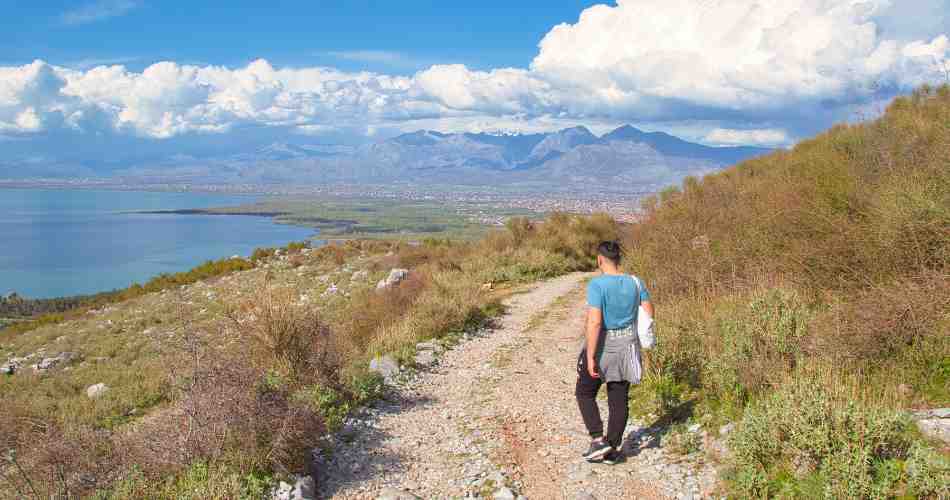
Of course, you won’t have the same transport options as places like London, Barcelona, or Rome – but you also don’t have to worry about pickpockets either.
So-Called ‘Affordability’
As a digital nomad in Albania, it’s easy to say it’s ‘affordable’ from that perspective. Yes, if you make money in a Western currency, chances are that you can live comfortably.
Though it’s important to remember, it’s not affordable to locals. Most struggle to have what is considered a ‘normal’ life since the local economy is not strong. Many leave to make money elsewhere because of how bad it is.
PSsst you shouldn't drink the tap water in *most* places in Albania. I suggest purchasing a filter water bottle to limit single use plastic.
Great Wifi
I pay around €13 for high-speed internet that works great for all of my heavy-duty use, like many different connected devices, working on my websites, and uploading youtube videos. It’s common to pay €13 – 18 per month.
Albania Digital Nomad Disadvantages
Living in Albania isn’t all sunshine and rainbows. Since Albania is still developing, there are plenty of speed bumps you can run into. There are plenty of disadvantages of being an Albania digital nomad, let’s talk about them.
Is Shkoder Safe? Here's what you need to know!
Technology Replacement Or Repair
Many foreigners don’t realize that owning or having access to a laptop or computer is not that common for Albanians. The average salary is around $300 so it makes sense that many don’t have extra money to purchase a laptop.
Since there isn’t a huge demand for higher price tech items like Macbooks or drones, it can be difficult to purchase new, and options will be limited.
And of course, repairing won’t be the easiest either. Tirana is getting better with this, though items are still priced way higher (than Western countries) because of import fees.

It Can Be Too ‘Chaotic’ For Some
Albania is notoriously chaotic, whether it’s transport or government bureaucracy. Since they did get out of communism not that long ago, the country’s infrastructure isn’t going to be what you find in Western countries.
Though some don’t mind this, it frustrates others. If you like things to be controlled and organized, you might struggle to enjoy life as a digital nomad in Albania.

Slow Pace Of Life
Albania’s slower pace of life correlates with the chaos. Because things can take longer, there is a slower pace of life.
I enjoy this because I have so much stress and anxiety living in places like the US that have a permeating ‘hustle’ culture.
The slower way of life that you can find all around the Mediterranean might not suit some nomads that enjoy big cities and a faster way of life.
Health Care / Medications
Albania’s health care and insurance can be a bit confusing (check out the linked guide for more in-depth information).
In some ways, you can get excellent care as a digital nomad in Albania since you can afford to pay for great private care.
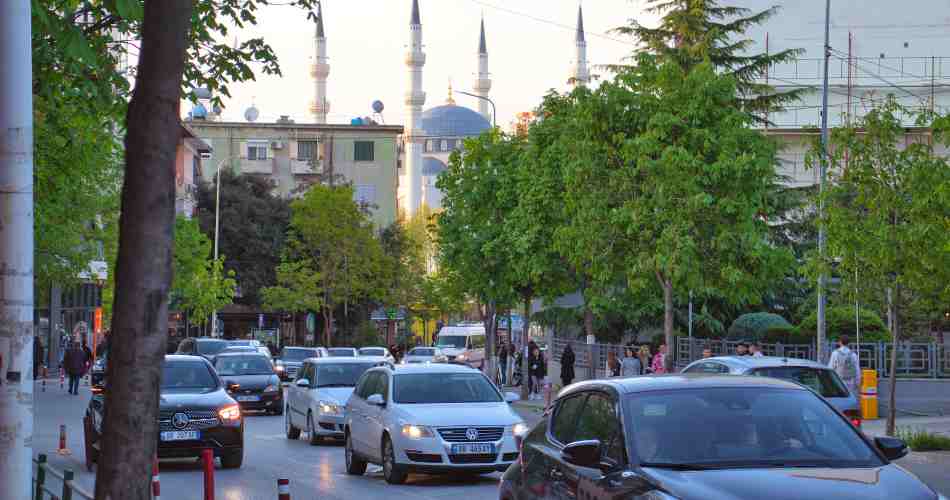
I’ve found that dentistry is very very good. Good dentists can be found all over the country, but for more general private care, it is limited.
As I mentioned before, young Albanians are leaving, so many areas remain remote and without adequate care. You’ll need to be in Tirana for most specialty care.
For medication, if there is a special thing you need, it might be hard to find, or limited options (like my asthma inhalers).
Vitamins and supplements can also have limited options if you need something out of the ordinary.
Wondering where to go swimming near Shkoder? Check out this awesome sand dune beach - Rana e Hedhun or the crystal clear water at Shala River!
Is Being A Digital Nomad In Albania Worth It?
My biggest struggle being a digital nomad in Albania has been with replacing any of my tech that breaks and also with getting some supplements for a health condition.
I usually have to purchase when I’m abroad or have friends that bring them back when they travel. For me, these are challenges but not impossible, so it’s worth it.
The delicious food, friendly people, beautiful nature, etc. are more than enough to make it worth being an Albania digital nomad.
Is The Digital Nomad Lifestyle Ethical?
This is an avoided topic in the digital nomad community for obvious reasons. From my experience, unless you make conscious efforts, being a digital nomad is not ethical.
On a surface level, there’s an obvious issue when remote workers from more privileged countries don’t want to be called an ‘immigrant’ but rather an ‘expat’.
Digital nomadism is being compared with modern-day colonization or imperialism since many will target certain places where their Western currency will take them far.
Basically traveling to a cheap place, use their resources, and then leave. In theory, it might seem like a positive thing because you’re putting outside money into the local economy.
The reality is that this results in the gentrification of the area pushing locals out of their homes, unable to afford to live in their own city or country.

Many treat destinations like their personal playground and only gravitate towards other nomads. Here are a few tips to be a conscious digital nomad:
- Always try to integrate into the local community
- Show respect to how locals do things, remembering to put aside your own ego
- Try to learn the language, don’t expect English everywhere
- Be open to staying in areas unconventional areas
- Follow local customs eg modesty and tipping culture
- Go out of your way to support local businesses
If you are wanting to be a digital nomad in Albania, I’d strongly encourage you to be wary of how your actions will affect locals.
As someone with a strong passport, I can travel easily (access to free visas, travel credit cards, a higher-paying job). Many locals dream of having this freedom – we can leave, but that is not necessarily true for them.

Digital Nomad Benefits
If you haven’t ever tried this lifestyle, here is what you need to know. The benefits of being a digital nomad can be different depending on who you are as a person. Here are some of the top ones.
- Flexibility – digital nomads have the flexibility to work from anywhere in the world, giving them the freedom to travel and explore new cultures.
- Increased creativity – digital nomads are often inspired by their travels and experiences, which can lead to increased creativity and productivity.
- New perspectives – digital nomads have the opportunity to meet new people, learn new languages, and experience new cultures, which can broaden their perspectives and improve their problem-solving skills.

Digital Nomad Disadvantages
Though disadvantages can vary from one person to the next, here are some common work-from-anywhere drawbacks.
- Lack of routine – without a set schedule, it can be challenging to maintain a consistent routine, which can lead to decreased productivity and work-life balance.
- Time zone challenges – working from different time zones can make it difficult to communicate with clients and team members, and can lead to longer workdays or early mornings/late nights.
- Distractions – working from new and exciting locations can also come with distractions that can make it difficult to focus on work, such as tourist attractions or social events.
- Expenses – while being a digital nomad can be cost-effective in some ways, it can also come with additional expenses like travel visas or unexpected expenses from being put into unfamiliar situations.

Remote Work Pros And Cons
Remote work has become increasingly popular in recent years, and for good reason. The benefits of remote work include:
- Increased flexibility – employees can work from anywhere with an internet connection, giving them more control over their schedules and allowing them to better balance work and personal life.
- Increased productivity – remote workers are often more productive than their office-bound counterparts, as they can avoid distractions and interruptions.
- Cost savings – remote work can save both employees and employers money on things like transportation, office space, and other expenses.

However, remote work also has its drawbacks, including:
- Isolation – remote workers can sometimes feel isolated and disconnected from their colleagues, which can lead to feelings of loneliness and depression.
- Communication challenges – communicating with remote colleagues can be more difficult than communicating with those in the same physical location, which can lead to misunderstandings and miscommunication.
- Difficulty disconnecting – remote workers may find it difficult to disconnect from work, leading to burnout and other mental health issues.

Freelancing Advantages and Disadvantages
Freelancing is a popular option for digital nomads, as it allows them to work on their own terms and have more control over their careers. The advantages of freelancing include:
- Flexibility – freelancers can choose their own hours and projects, giving them more control over their schedules and work-life balance.
- Increased earning potential – freelancers can often earn more than their office-bound counterparts, as they can set their own rates and take on multiple projects at once.
- Creative control – freelancers have more creative control over their work, allowing them to showcase their skills and build their portfolios.
However, freelancing also has its disadvantages, including:
- Uncertainty – freelancers may not have a steady stream of income, and may need to constantly market themselves to find new clients.
- Unpredictability – freelancers may experience fluctuations in workload, which can make it difficult to plan for the future.
- Lack of benefits – freelancers do not have access to traditional benefits like health insurance or retirement plans, which can make it difficult to plan for the future.


This is why I always recommend getting nomad insurance from SafetyWing. Rather than acting like a traditional insurance that only covers you in one place, this goes with you.
It acts as a safety net that doesn’t limit your freedom or spontaneity. It’s a subscription so you don’t have to worry about it running out either.
Plus, if you want, you can sign up at any point, even if you’ve already started your adventure. It’s really affordable, get a quote here.
Final Thoughts
Overall, being a digital nomad can be an exciting lifestyle choice for those who prioritize flexibility, creativity, and adventure.
However, it’s important to weigh the pros and cons of remote work and freelancing. Make sure to be aware of the impact that you cause as a digital nomad.
With careful planning and a willingness to adapt to new environments, digital nomads can enjoy the benefits of remote work and still make a positive impact.
As for being a digital nomad in Albania – it’s a great place to explore. I’d recommend it if it sounds like it would be a fit for you.
